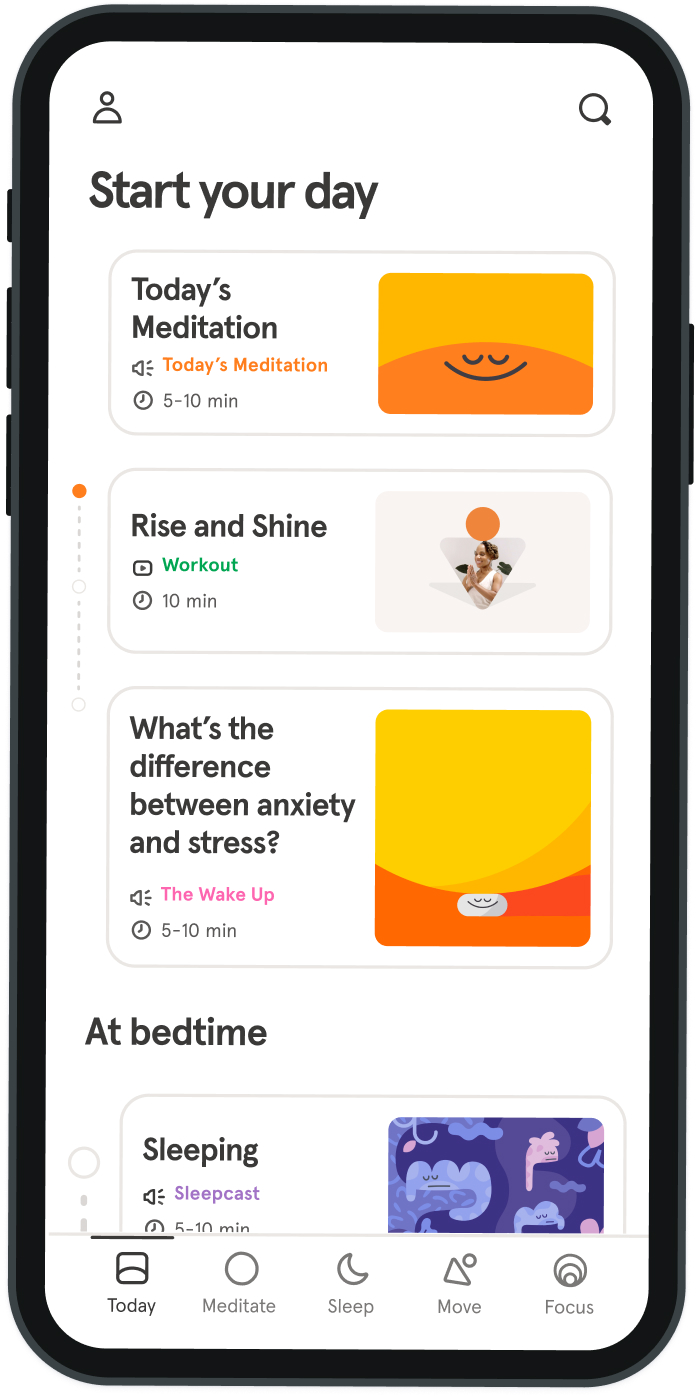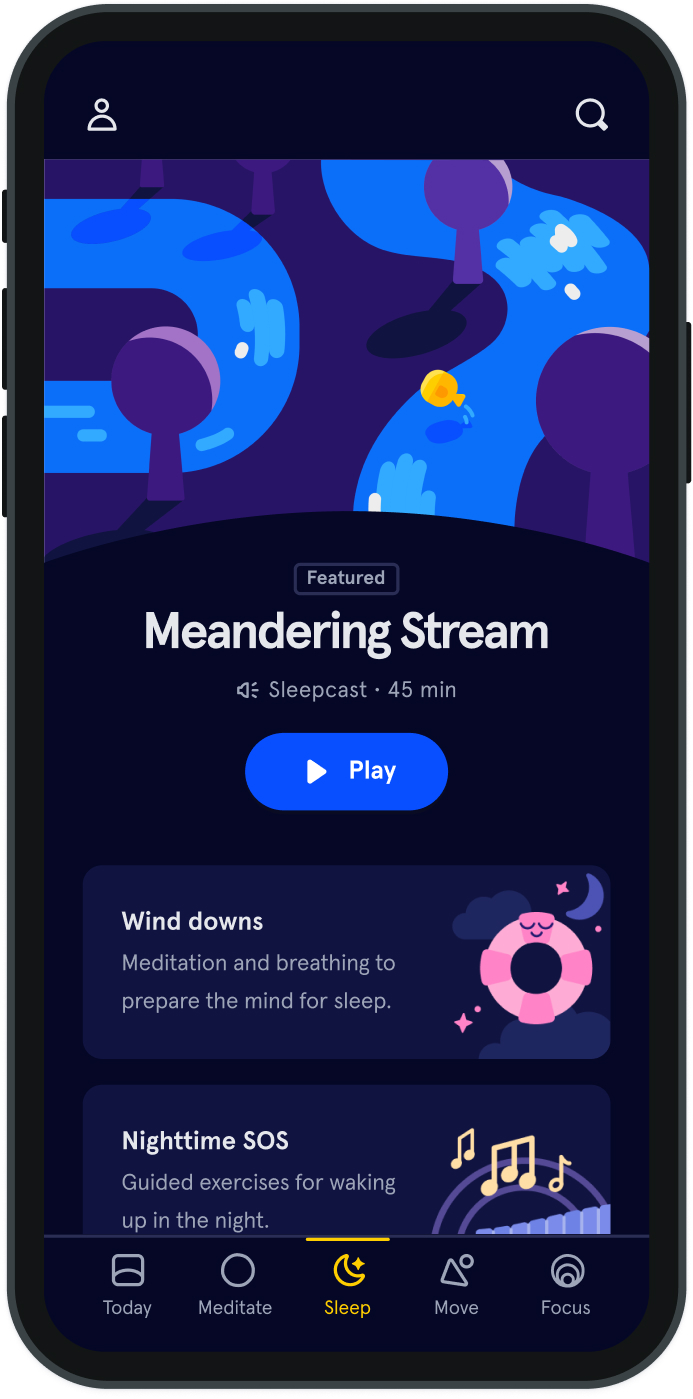How an elite athlete uses meditation for recovery
A gram of protein here, a repetition there—in professional sport, the margins between winning and losing are very small, hence the phrase "one percenters."
While we obviously can’t control everything required to win a game (like the opposition or the referee), we can take complete control and responsibility for our own efforts. It is with this in mind that the prevalence of athletes focusing on recovery is clear.
I would describe recovery as the ability to bring the mental and physical state back to—or as close as possible to—an optimal state. In this optimal state of readiness, athletes can perform with maximal intensity, even the most unlikely underdog can compete heroically and everyone can get the most out of their training. So it’s clearly a place we want to be.
I would describe recovery as the ability to bring the mental and physical state back to – or as close as possible to – an optimal state. In this optimal state of readiness, athletes can perform with maximal intensity, even the most unlikely underdog can compete heroically and everyone can get the most out of their training. So it’s clearly a place we want to be.
I was already practicing mindfulness on a daily basis with Headspace when a friend who works in the fitness industry mentioned the potential benefits I was gaining from my meditation without realizing. I’d written for Headspace about the importance of the mind for an athlete and how the app was a great tool for this, so I was surprised to learn about the physical benefits I was possibly (and ignorantly) gaining. Sure, I knew I was more relaxed, but I attributed that to more of a mental blissfulness than a physical freshness.
My friend described it like this: "If exercise causes stress on your muscles and nervous system, then you should see mindfulness as your ticket to physical relaxation (the opposite of stress) and, therefore, accelerated recovery." Now, although this may seem self-explanatory, a lot of athletes’ “active recovery” protocol looks more like a high intensity workout than something to rejuvenate fatigued muscles. The theory is that by exercising and pumping blood to the muscles, you are giving them the nutrients they need to recover. I don’t think recovery is a one size fits all process, but I actually experience more fatigue when I do this the day after competition or high intensity training. I can vouch for many rugby players when they say they feel tired...a lot!
It’s known that active recovery helps avoid stiffness – and that does resonate with me. However, I feel I can accomplish this through low intensity walking, and the Headspace Walking single is something I would recommend to anyone looking to keep moving on their days off. I’ve also been far more aware of my beautiful surroundings in doing so!
Once I realized just how important stillness and relaxation are in helping me get back into my best shape, my mindset around how to get the most out of my body changed. I’ve begun to fully engage with Headspace. It’s become one of my "one percenters." I’m more motivated than ever to meditate as much as possible and supplement it with plenty of self-directed mindfulness.
I was already practicing mindfulness on a daily basis with Headspace when a friend who works in the fitness industry mentioned the potential benefits I was gaining from my meditation without realizing. I’d written for Headspace about the importance of the mind for an athlete and how the app was a great tool for this, so I was surprised to learn about the physical benefits I was possibly (and ignorantly) gaining.
Sure, I knew I was more relaxed, but I attributed that to more of a mental blissfulness than a physical freshness.
My friend described it like this: "If exercise causes stress on your muscles and nervous system, then you should see mindfulness as your ticket to physical relaxation (the opposite of stress) and, therefore, accelerated recovery."
Now, although this may seem self-explanatory, a lot of athletes’ “active recovery” protocol looks more like a high-intensity workout than something to rejuvenate fatigued muscles. The theory is that by exercising and pumping blood to the muscles, you are giving them the nutrients they need to recover.
I don’t think recovery is a one size fits all process, but I actually experience more fatigue when I do this the day after competition or high-intensity training. I can vouch for many rugby players when they say they feel tired... a lot!
It’s known that active recovery helps avoid stiffness—and that does resonate with me. However, I feel I can accomplish this through low intensity walking, and the Headspace Walking single is something I would recommend to anyone looking to keep moving on their days off. I’ve also been far more aware of my beautiful surroundings in doing so!
Once I realized just how important stillness and relaxation are in helping me get back into my best shape, my mindset around how to get the most out of my body changed. I’ve begun to fully engage with Headspace. It’s become one of my "one percenters." I’m more motivated than ever to meditate as much as possible and supplement it with plenty of self-directed mindfulness. This piece was produced in partnership with Nike Training Club. To get started on your fitness journey, download the NTC app here.



Be kind to your mind
- Access the full library of 500+ meditations on everything from stress, to resilience, to compassion
- Put your mind to bed with sleep sounds, music, and wind-down exercises
- Make mindfulness a part of your daily routine with tension-releasing workouts, relaxing yoga, Focus music playlists, and more
Meditation and mindfulness for any mind, any mood, any goal

Stay in the loop
Be the first to get updates on our latest content, special offers, and new features.
By signing up, you’re agreeing to receive marketing emails from Headspace. You can unsubscribe at any time. For more details, check out our Privacy Policy.
- © 2025 Headspace Inc.
- Terms & conditions
- Privacy policy
- Consumer Health Data
- Your privacy choices
- CA Privacy Notice
